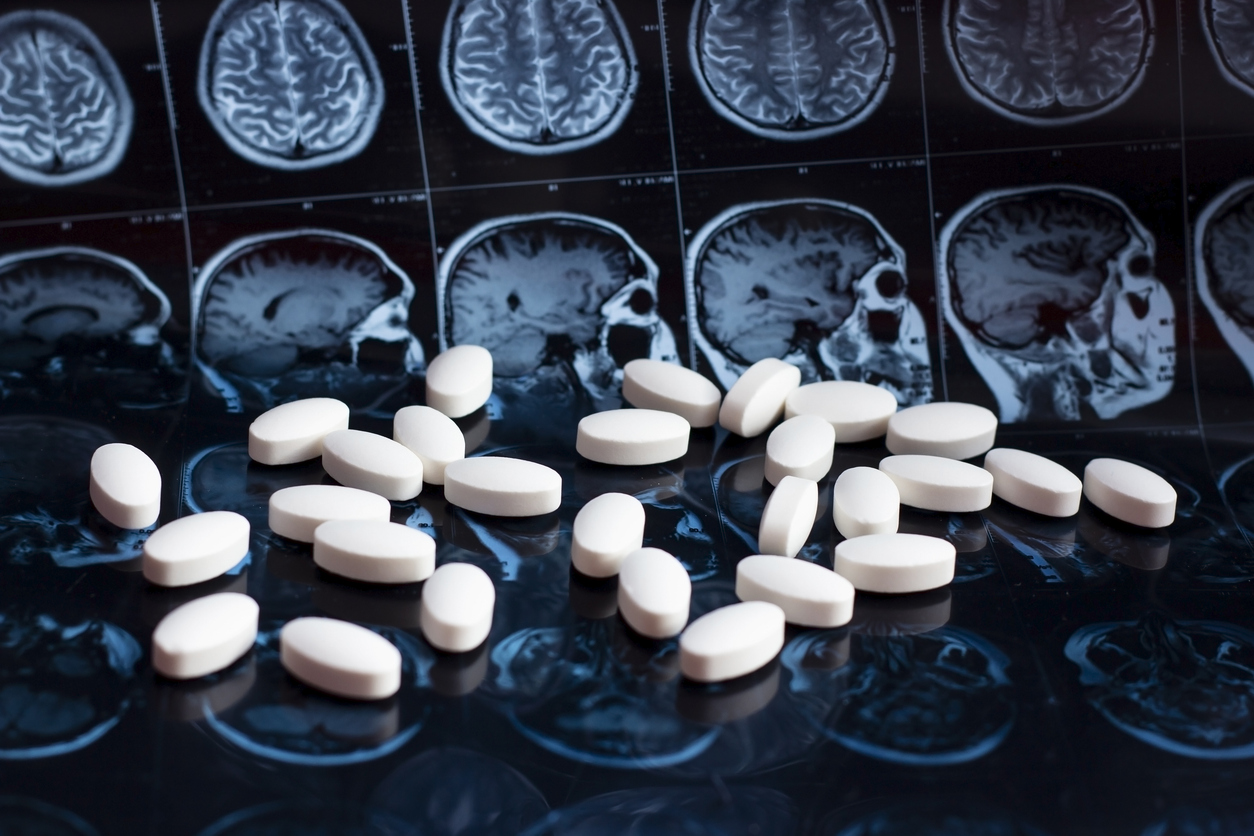Alzheimer's Risk Reduction
Alzheimer’s disease is a complex disorder for which there is currently no known prevention or cure. However, research suggests that lifestyle choices can support healthy brain aging and reduce Alzheimer’s disease risk. Healthy habits, like exercising and eating a nutrient-rich diet, can improve and maintain overall health.

Working Together, We Can Stop Alzheimer’s
Alzheimer’s affects one in nine Americans over 65. Your support helps us fund the most promising research to stop this mind-stealing disease and provide valuable information to the public.

Who Is More at Risk for Alzheimer's?
Age is the greatest risk factor for Alzheimer’s disease, however studies show that some people could be at higher risk for Alzheimer's.
Women
Women are disproportionately affected by the disease, comprising approximately two-thirds of Alzheimer’s patients themselves and also serving as the majority of caregivers for people living with the disease.
African Americans & Hispanics
African Americans and Hispanics with certain psychiatric symptoms such as anxiety, apathy/indifference, and irritability have a higher risk of developing cognitive impairment, often a precursor to Alzheimer’s disease and other dementias.
People With Other Medical Conditions
Other medical conditions, some treatable such as depression, sleep disturbances like apnea, and traumatic brain injury have been shown to influence the risk of cognitive decline.

Nutrition & Lifestyle for Alzheimer's
Some research has generated hope that one day it might be possible to slow the progression of Alzheimer’s disease, delay its symptoms, or even prevent it from occurring at all. Although research supports the benefit of some interventions—such as physical activity and cardiovascular risk reduction—nothing at this time has definitively been shown to prevent Alzheimer’s disease or other dementias.
Healthy Lifestyle Actions You Can Take Right Now
- Eat a varied, nutritious, and low-glycemic diet.
- Get regular exercise and maintain a healthy weight.
- Keep your mind active.
- Get enough good quality sleep, as recommended for your age group.
More Ways to Reduce Alzheimer's Risk
Can Non-Drug Interventions Really Reduce Your Risk of Alzheimer’s?
Watch this episode of Zoom in on Dementia and Alzheimer’s to learn more about non-drug-related risk reduction options.
Resources
Recent Resources & Information

Zoom In on Dementia & Alzheimer's
The Next Generation of Alzheimer’s Treatments
Join behavioral neurologist Dr. Marwan Sabbagh for an in-depth discussion about emerging Alzheimer’s therapeutics now in late-stage clinical development.

Expert Information
Why Some Brains Stay Sharp With Age
Learn how cognitive reserve can make some people more resistant to memory decline.

Downloadable Resource
Understanding Alzheimer’s Disease
Alzheimer’s disease affects people’s memories, but it involves far more than simple forgetfulness. Learn more about this devastating disease.

Downloadable Resource
FDA-Approved Alzheimer’s Therapies Infographic
Although there is no cure for Alzheimer’s disease, certain treatments can help control or delay its symptoms, particularly in the early stages of the disease. Talk to your physician to see if these medications are right for you.

Zoom In on Dementia & Alzheimer's
The Gut Microbiome and Alzheimer’s Disease: Understanding the Connection
Join Dr. Beau Ances of Washington University in St. Louis to learn about the emerging science linking gut health and brain health.

Story
“Help the One You Can”
Meet Mel and Irene Sahyun, donors to BrightFocus' Alzheimer's Disease Research program.

Zoom In on Dementia & Alzheimer's
U.S. POINTER Study Update: Lifestyle Program Significantly Improves Cognition in Older Adults
Can everyday lifestyle choices really protect your memory? Dr. Laura Baker, professor at Wake Forest University School of Medicine, will share results from the groundbreaking U.S. POINTER trial—the largest study of its kind to test how lifestyle changes impact brain health.
Zoom In on Dementia & Alzheimer's
Non-Invasive Light and Sound Stimulation Therapy in Alzheimer’s: Update on HOPE Study
Can light and sound help slow Alzheimer’s? Join Christian Howell, CEO of Cognito Therapeutics, as he shares the latest on the HOPE Study. Discover how non-invasive 40 Hz light and sound stimulation may protect memory, thinking, and daily function—and what’s next for this promising technology.

Zoom In on Dementia & Alzheimer's
Can GLP-1 Weight Loss Drugs Treat Alzheimer’s?
Recent research suggests that GLP 1 analogs—a class of drugs used to control blood sugar—may also protect brain health, improve memory, and slow neurodegeneration.


